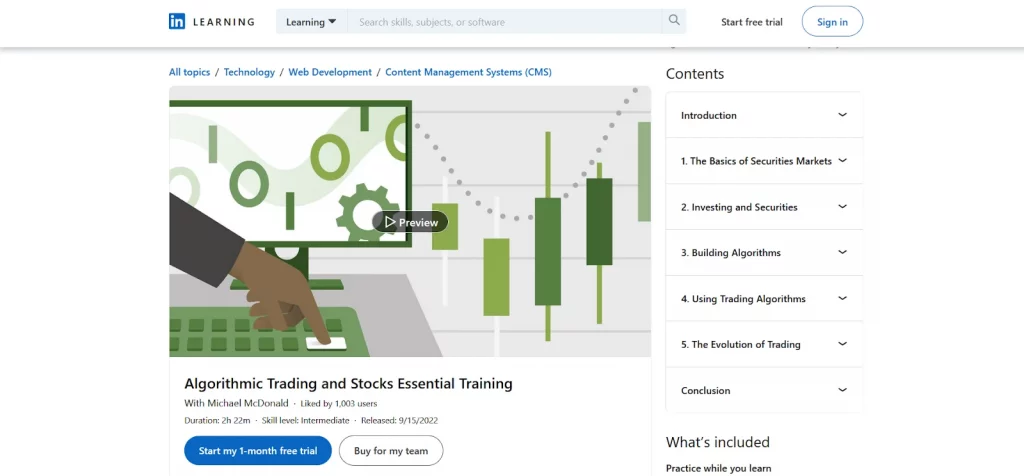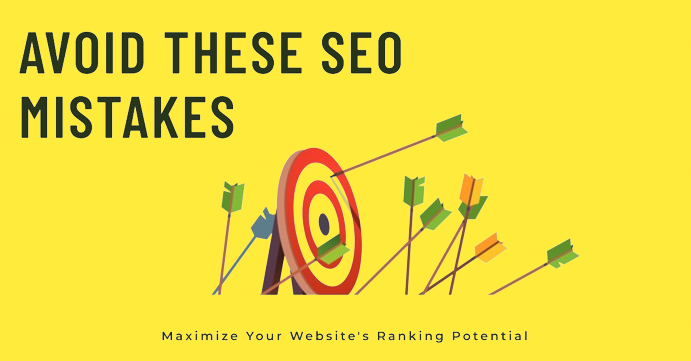How to Become a Search Engine Optimization Specialist: From an SEO Expert

Sanya Kaushal
Sanya is a seasoned SEO and content writing expert with a 10 years of experience. She is skillfully driving organic growth and crafting search-optimized content that engages audiences and elevates brand visibility across industries.

Over the past decade, SEO has evolved from a side gig to one of the most in-demand skills in digital marketing. I began as a freelancer on Upwork, working with diverse clients ranging from local legal firms to national real estate agencies, and finally, I evolved into a comprehensive SEO consultant.
This journey wasn’t just about learning techniques; it involved embracing the ever-changing search engine algorithms, continuously experimenting with new tools, and most importantly, developing a passion for digital discovery.
In this guide, I will share my journey and provide an in-depth roadmap for aspiring SEO specialists, complete with actionable steps and detailed advice.
What Does an SEO Specialist Do?
An SEO expert is responsible for optimizing websites for better search engine ranking. The work involves:
Technical SEO Audits: Identifying and correcting site errors, crawl issues, and problematic code.
On-Page SEO Optimization: Fine-tuning meta tags, headers, and keyword placement.
Content Strategy: Crafting high-quality, engaging content that answers user queries and supports search intent.
Keyword Research: Investigating what users are querying online and tailoring content to match these searches.
Off-Page Optimization: Building domain authority through link building, social signals, and guest posts.
Analytics & Reporting: Measuring site performance using tools like Google Analytics and interpreting data to inform strategy.
In the early years, I learned that SEO is both an art and a science. While technical fixes are critical, crafting content that speaks to your audience is equally important.
Why SEO Matters More Than Ever in 2025?
Search engines are the primary gateway to the digital world. Some studies reveal that over 93% of all online experiences begin with a search engine.
“A recent study by FirstPageSage’s research in 2024 highlighted that the #1 result on Google captures around 39.8% of clicks, while the tenth drops to a mere 1.6%.”
These statistics illustrate that high rankings are more than a vanity metric; they translate directly into revenue and enhanced brand credibility.

Step 1: Build Your Foundation
Your journey begins by grasping the basics. Start by understanding these fundamental components:
Keyword Research: Learn how to use platforms like Ahrefs, SEMrush, or Moz. Discover the balance between search volume, competition, and the user’s intent behind keywords.
On-Page Optimization: Learn the optimal use of meta descriptions, title tags, and header tags (H1, H2, H3). Structure your content logically so both users and search engines can understand its value.
Technical SEO: Gain a working understanding of website architecture, server responses, URL structures, and the importance of mobile-friendly designs.
Off-Page SEO: Understand how to build quality backlinks through outreach, partnerships, and guest posting. Quality over quantity is a mantra in link building.
When I was starting out, resources such as Google’s SEO Starter Guide and Moz’s Beginner’s Guide to SEO were instrumental. You can still find material on these websites which in my view is great for beginners.
Step 2: Choose Your Learning Path
There are several avenues to learn SEO, each with distinct pros and cons:
Self-Study: Start by experimenting on personal projects. My first step was optimizing my blog for niche keywords like “SEO tips for beginners” to see how practical applications worked.
Online Courses: Platforms like Coursera, Udemy, and LinkedIn Learning offer a structured SEO course. You can opt for courses such as HubSpot’s SEO Certification, which provides both foundational theory and practical exercises.
Certifications: Google Analytics, Google Search Console, and Bing Webmaster Guidelines certifications can add valuable credibility to your profile.
Formal Education: Even though a degree isn’t necessary, some universities offer digital marketing courses that provide a broader understanding.
Hands-On Experience: Internships and entry-level positions in digital marketing agencies offer real-world insights and help you connect theoretical concepts with practical applications.

Step 3: Gain Practical Experience
In the initial phase of my career, small projects were invaluable:
Freelancing on Upwork: Begin with small website audits or optimization projects. Even working with local businesses will build your portfolio.
Portfolio Projects: I once revamped a local dentist’s website by:
Fixing broken links.
Crafting blog posts that targeted queries such as “root canal cost in Punjab.”
Tweaking title tags to include local keywords.
Manage Expectations: Clear communication is essential for SEO professionals. Set measurable KPIs at the project’s outset.
Case Studies: Document your processes and outcomes. For instance, I optimized a website for a legal firm by focusing on long-tail keywords like “contested divorce lawyer fees,” resulting in a 50% traffic boost within four months.
Iterative Improvement: SEO is never a one-and-done fix. Continually refine strategies based on ongoing analytics.
Step 4: Master Essential Skills like Technical SEO
Technical SEO is the backbone of any successful website:
Schema Markup: Implement structured data to enhance product listings or event information on SERPs.
Mobile-First Optimization: Ensure that your site is responsive and loads quickly on mobile devices. With the majority of users accessing the web via smartphones, mobile performance is critical.
Website Speed: Learn about caching, image optimization, and script minification. I once worked with a developer to lazy-load images, significantly improving the site’s Core Web Vitals.
Site Architecture: Build clear and coherent navigation structures that facilitate user journeys and support search engine crawling.

Step 5: Content Strategy - Quality Over Quantity
While technical aspects are essential, content remains king:
Understanding User Intent: Create content that genuinely addresses user questions. Use tools like AnswerThePublic to identify what your audience wants to know.
Content Structuring: Use headings, bullet points, and multimedia elements to break down complex information. For instance, a food blog benefited enormously by having a dedicated FAQ section that answered common culinary questions.
Repurposing Content: Turn long-form blog posts into videos, infographics, or podcasts to reach a broader audience. This multipronged approach ensures that your content remains accessible and engaging.
Step 6: Analytics & Reporting
Interpreting analytics is a vital skill:
Google Analytics and Search Console: Dive deep into traffic sources, bounce rates, and user engagement metrics. For one client, I identified that pages featuring “Punjab real estate trends” drove the most leads, prompting further investments in similar content.
Custom Reporting: Develop tailored dashboards that provide real-time insights into key metrics. Use these dashboards during client meetings to showcase tangible progress.
A/B Testing: Continuously test different page layouts, call-to-actions, and content formats. Small changes can lead to significant improvements in conversion rates.
Step 7: Stay Updated in a Dynamic Field
Search engine algorithms are constantly evolving:
Google Updates: Whether it’s BERT or the Helpful Content Update, always align your strategy with the latest changes. For example, when BERT was introduced in 2019, I prioritized natural language processing in content development, leading to improved rankings for how-to guides.
Regular Learning: Subscribe to newsletters from Search Engine Journal, Moz, and SEMrush. Participating in industry webinars and conferences ensures you’re never behind the curve.
Team Training: If you work in an agency, ensure that your team is also staying informed. Regular training sessions and internal workshops help maintain a high standard.

Step 8: Testing Emerging Trends
Voice Search Optimization: With voice-activated queries on the rise, optimize your content for conversational language. For instance, phrases like “How do I start an SEO agency?” are becoming increasingly common.
AI Tools: Experiment with AI writing assistants for generating meta descriptions and headlines—but always add a personal editing touch to keep the narrative human.
Video SEO: Incorporate YouTube and other video platforms into your strategy by embedding video content into blog posts. This not only enhances user engagement but also signals diversity to search engines.
Local and International SEO: As your skills mature, explore optimizing for international audiences or hyper-local search results. I have worked on projects where we tailored content for specific geographic regions, ensuring that localized search terms and regional language nuances were addressed.
Step 9: Scale Your Career With a Portfolio
Your portfolio is often your first impression:
Case Studies: Include detailed case studies that outline the challenges, strategies implemented, and measurable results. For example:
Case Study 1: Helped a law firm boost organic traffic by 300% within six months.
Case Study 2: Increased an e-commerce site’s revenue by 40% through a comprehensive product page optimization strategy.
Testimonials: Authentic client testimonials build trust and credibility. Ensure that these are prominently displayed on your website or professional profiles.
Certifications and Awards: If you have industry-recognized certifications or awards, display them. They serve as third-party verification of your expertise.
Step 10: Networking & Collaboration
The SEO industry thrives on collaboration:
Industry Conferences: Attend events like MozCon, BrightonSEO, and Pubcon. Networking with other professionals offers a twofold advantage—exchanging ideas and potentially developing fruitful partnerships.
Professional Communities: Join LinkedIn groups, Reddit communities, or local meetups focused on digital marketing. These communities can be vital sources of support and insight.
Mentorship: Find a mentor who can guide you through career challenges and share their own industry insights. Likewise, mentoring new entrants can reinforce your SEO knowledge and leadership skills.
Step 11: Specialization: Finding Your Niche
While being a generalist is useful, specializing can set you apart:
Local SEO: Become an expert in dominating “near me” searches for local businesses. My experience in Punjab helped local businesses leverage community searches effectively.
E-commerce SEO: Focus on product page optimization, ensuring sites with extensive SKUs rank well for transactional queries.
Content Strategy: Develop a niche in creating editorial calendars that align with industry-specific seasonal trends—such as festive gift guides for Diwali or summer home improvement tips.
Technical SEO Consulting: Consider specializing in complex audits and site migrations, a field in which many businesses require expert guidance.

Step 12: Invest in Advanced Skills
To truly excel in SEO, you must evolve your keyword research methodologies:
Semantic Search and LSI: Beyond primary keywords, identify latent semantic indexing terms that provide context and boost search relevance.
Competitor Analysis: Use competitive intelligence tools to see how top-ranking sites structure their content and the keywords they target.
User Intent Mapping: Regularly update your keyword strategy by mapping user journeys—identifying where new needs are emerging as markets evolve.
Custom Dashboards: Learn to create comprehensive dashboards that integrate data from multiple sources (e.g., Google Analytics, Search Console, social media analytics) to present a holistic view of performance.
Attribution Modeling: Gain an understanding of multi-touch attribution models to better measure and optimize your digital marketing efforts.
Predictive Analysis: As machine learning tools become more prevalent, leverage predictive models to anticipate trends and user behaviors. This proactive approach can ensure that your SEO tactics remain a step ahead.
Step 13: Project Management and Process Optimization
Managing SEO projects often involves coordinating multiple moving parts:
Agile Methodology: Apply agile principles to your projects. Using sprints, Kanban boards, or scrum meetings can help keep both your team and your clients in sync.
Time Management: Learn robust time management techniques, such as the Pomodoro Technique or task prioritization frameworks, to manage multiple client projects efficiently.
Collaboration Tools: Utilize software like Trello, Asana, or Monday.com to maintain transparency and ensure that every task—ranging from content reviews to technical audits—is tracked meticulously.
Step 14: Expand Your Toolkit
A well-equipped toolkit is essential for any SEO specialist:
Analytics Platforms: Google Analytics, Google Search Console, and Bing Webmaster Tools should be your go-to for performance tracking.
Keyword & Competitor Research: Tools like SEMrush, Ahrefs, Moz, and Ubersuggest provide in-depth insights into keyword opportunities and competitor strategies.
Technical SEO Tools: Leverage Screaming Frog, Sitebulb, or DeepCrawl for comprehensive site audits.
Content Optimization: Tools such as Clearscope, SurferSEO, and Yoast SEO help ensure your content is optimized both for search engines and readers.
Link Building: Monitor your backlink profile with tools like Majestic or Linkody, and build relationships through outreach management platforms like Pitchbox.

Step 15: Cultivate a Growth Mindset
SEO is a field in perpetual evolution:
Stay Inquisitive: Regularly research industry blogs, listen to podcasts, and follow thought leaders on social platforms. My habit of spending just 30 minutes a day reading industry news has kept me ahead of trends.
Experiment Often: Every new algorithm update or tool release is an opportunity to test, learn, and document what works. Don’t be afraid to try something new—even if it might fail. Failure is often the best teacher.
Feedback Loops: Establish regular cycles of feedback with peers and mentors. Constructive critique can accelerate your learning curve and help refine your strategies.
Step 16: Emphasize Soft Skills
Technical mastery is just one half of the equation:
Communication: Delivering complex SEO insights to non-technical stakeholders is a critical skill. Tailor your language to your audience and back up recommendations with clear data.
Creativity & Curiosity: The best SEO strategies are often born out of innovative thinking. Look for inspiration both within and beyond the digital space.
Resilience: SEO campaigns can take time to bear fruit. Develop patience and resilience. Celebrate small wins and remain persistent even when results seem distant.
Step 17: Future-Proof Your SEO Career
As the field evolves, broadening your digital marketing skills can create new job opportunities:
Cross-Channel Expertise: Understanding social media marketing, PPC (pay-per-click), and email marketing can complement your SEO strategies.
Content Marketing Mastery: In an era where content is king, having advanced skills in content marketing—including storytelling, video production, and interactive content—will keep you relevant.
Understanding User Experience (UX): Search engines increasingly prioritize UX signals. Familiarize yourself with the principles of user-centered design and how user experience metrics affect SEO rankings.
Conclusion: Your Path to SEO Mastery
The journey to become an SEO expert is a marathon, not a sprint. It requires technical knowledge, creative problem-solving, continual adaptation, and most importantly—a passion for learning.
My 10-year journey has shown me that while the fundamentals of SEO remain important, the ability to adapt and innovate is what truly sets a great SEO specialist apart



